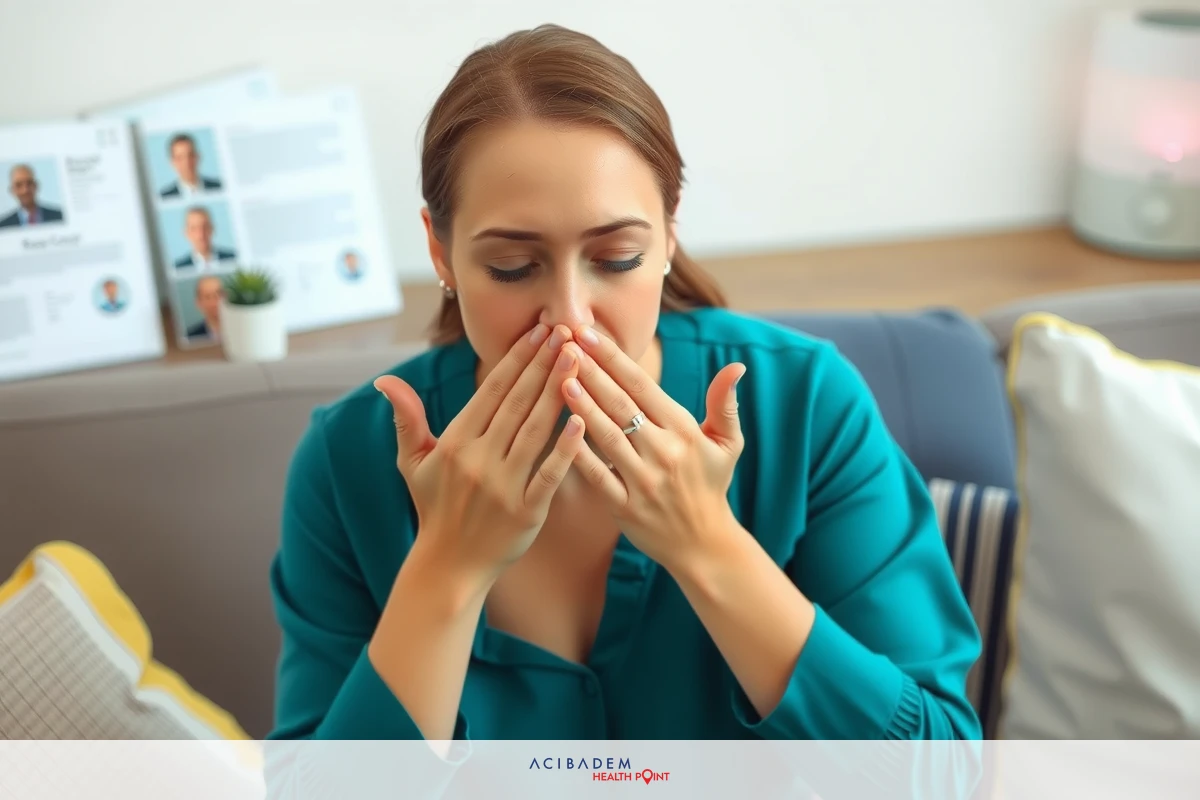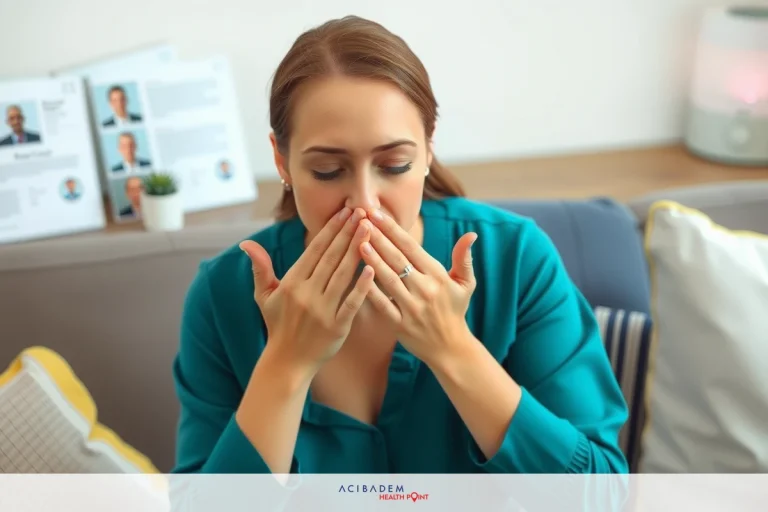How to Stop Yourself from Sneezing After Rhinoplasty
How to Stop Yourself from Sneezing After Rhinoplasty Rhinoplasty, a commonly pursued field in facial cosmetic surgery, concerns itself with nose reshaping and resizing. While the results can boost self-confidence and improve breathing, post-operative care is critical. One concern that many patients have after rhinoplasty is sneezing. Sneezing after rhinoplasty can be uncomfortable and potentially disrupt the healing process.
Therefore, it’s beneficial for patients to understand how to prevent sneezing after surgery and what to do if the urge to sneeze becomes unavoidable. This knowledge helps ensure a smooth recovery period and optimal results from the surgery. From recognizing triggers that may induce sneezing to learning practical tips for managing these situations, patients can be better equipped to navigate their post-rhinoplasty journey.
Why is Sneezing a Concern After Rhinoplasty?
After rhinoplasty surgery, patients are often concerned about sneezing. This concern arises from the fact that the nose, having just undergone a surgical procedure, is in a delicate state of recovery. The force and suddenness of a sneeze can exert pressure on the nasal structures that have been altered or repaired during rhinoplasty. This pressure can potentially lead to complications such as displacement of the newly formed nasal structures, bleeding, increased swelling, or even rupture of sutures.
The issue with sneezing after rhinoplasty goes beyond mere discomfort. It’s not just about the immediate pain or irritation that might occur when you sneeze. More than that, it’s about protecting the results of your surgery. You want to ensure that your newly shaped nose heals properly without any unnecessary disturbances. Preventing sneezing is one of several steps you can take to help safeguard your surgical results and ensure a smooth recovery process.
However, it’s important to remember that sneezing is a natural reflex action intended to clear the nasal airways. Sometimes it may be unavoidable, especially if you are prone to allergies or have a cold. In these cases, knowing how to handle the situation can make a big difference. There are ways to stop sneezing or at least limit its impact on your healing nose after rhinoplasty. The goal is to manage this concern effectively so that it doesn’t interfere with your recovery and you can enjoy the results of your surgery to the fullest.
Tips to Prevent Sneezing After Rhinoplasty
After undergoing rhinoplasty, it’s crucial to minimize sneezing to protect your surgical results and facilitate a successful recovery. While it may not be possible to completely avoid sneezing, especially if you have allergies or catch a cold, you can certainly take steps to reduce the likelihood of sneezing. Here are some useful tips that can help prevent sneezing after your rhinoplasty procedure.
- Avoid Allergens: Exposure to allergens is one of the most common triggers for sneezing. If you’re aware of specific allergens such as dust, pollen, or pet dander that cause you to sneeze, take measures to avoid them.
- Stay Hydrated: Keeping well-hydrated can help soothe your nasal passages and reduce the urge to sneeze. Drink plenty of water throughout the day.
- Use a Humidifier: Dry air can irritate your nasal passages and trigger sneezing. Using a humidifier in your living area can help maintain moisture in the air and prevent dryness.
- Avoid Cold Environments: Cold temperatures often lead to a runny nose, which can trigger a sneeze. Try to stay in warm environments as much as possible after your surgery.
- Control Your Breathing: Deep breathing exercises can help control the urge to sneeze by helping you manage your body’s reflexes.

A woman in a blue blouse is sitting on a couch, her hand covering her mouth as if she’s sneezing. She appears to be indoors, and there are some books nearby. - Keep Your Mouth Open: If you feel a sneeze coming on, try to keep your mouth open. This will relieve some of the pressure on your nose when you sneeze.
Remember, these tips are intended to help reduce the frequency of sneezing after rhinoplasty. However, if you do need to sneeze, there are ways to handle it safely without jeopardizing your recovery.
How to Stop Yourself from Sneezing After Rhinoplasty: What to Do If You Need to Sneeze
Despite your best efforts to prevent sneezing after rhinoplasty, there may be moments when the urge to sneeze is inevitable. It’s important to know how to handle these situations effectively so as not to disrupt the healing process of your nose. The way you sneeze after a rhinoplasty procedure can significantly impact the outcome of your surgery and your recovery.
If you feel a sneeze coming on, try to keep it gentle. A forceful sneeze can put a lot of pressure on the surgical site and potentially cause complications. To do this, try to keep your mouth open when you sneeze. This simple action allows some of the air pressure to be expelled through the mouth rather than pushing entirely through the nasal passages. Also, avoid holding in a sneeze. Suppressing a sneeze can lead to even greater internal pressure, which could be harmful post-rhinoplasty.
In addition to these precautions, maintaining good overall hygiene can help prevent illnesses that might trigger sneezing. Regular hand washing, avoiding close contact with individuals who are unwell, and keeping your living environment clean are ways to reduce exposure to germs that could lead to colds or allergies. Furthermore, if you’re prone to allergies, consider talking with your doctor about taking antihistamines after your surgery. These medications can help control allergic reactions and reduce symptoms like sneezing.
Remember, while it’s beneficial to prevent sneezing after rhinoplasty as much as possible, sometimes it’s unavoidable. When those moments arise, knowing how to sneeze properly can make all the difference in protecting your surgical results and ensuring a smooth recovery.
Frequently Asked Questions
Can I completely prevent sneezing after rhinoplasty?
While it may not be possible to completely prevent sneezing after rhinoplasty, there are measures you can take to minimize the likelihood of sneezing. By following the tips mentioned earlier, such as avoiding allergens, staying hydrated, and using a humidifier, you can greatly reduce the frequency of sneezing episodes.
What should I do if I need to sneeze after rhinoplasty?
If you feel a sneeze coming on, try to keep it gentle and avoid forceful sneezing. Keep your mouth open while sneezing to release some of the pressure. It's important not to suppress or hold in the sneeze, as this can increase internal pressure and potentially harm your healing nose.
Can sneezing affect the results of my rhinoplasty surgery?
Sneezing can potentially affect the results of your rhinoplasty surgery if it exerts significant pressure on the nasal structures. Forceful sneezing may cause displacement of the newly formed nasal structures, bleeding, increased swelling, or disruption of sutures. It's important to take precautions and minimize sneezing as much as possible during the initial healing period.
How long after rhinoplasty should I be cautious about sneezing?
The duration for which you should be cautious about sneezing after rhinoplasty varies from person to person. Generally, it is recommended to be cautious for at least two weeks following surgery when the nasal tissues are most fragile. However, it is always best to follow specific guidelines provided by your surgeon, as individual circumstances and healing processes may differ.
When can I expect my sensitivity to sneezing to subside after rhinoplasty?
The sensitivity to sneezing usually subsides as the healing progresses. Within a few weeks to a couple of months after rhinoplasty, most individuals find that their sensitivity to sneezing diminishes. However, it's important to consult with your surgeon for personalized advice regarding your specific recovery timeline.











